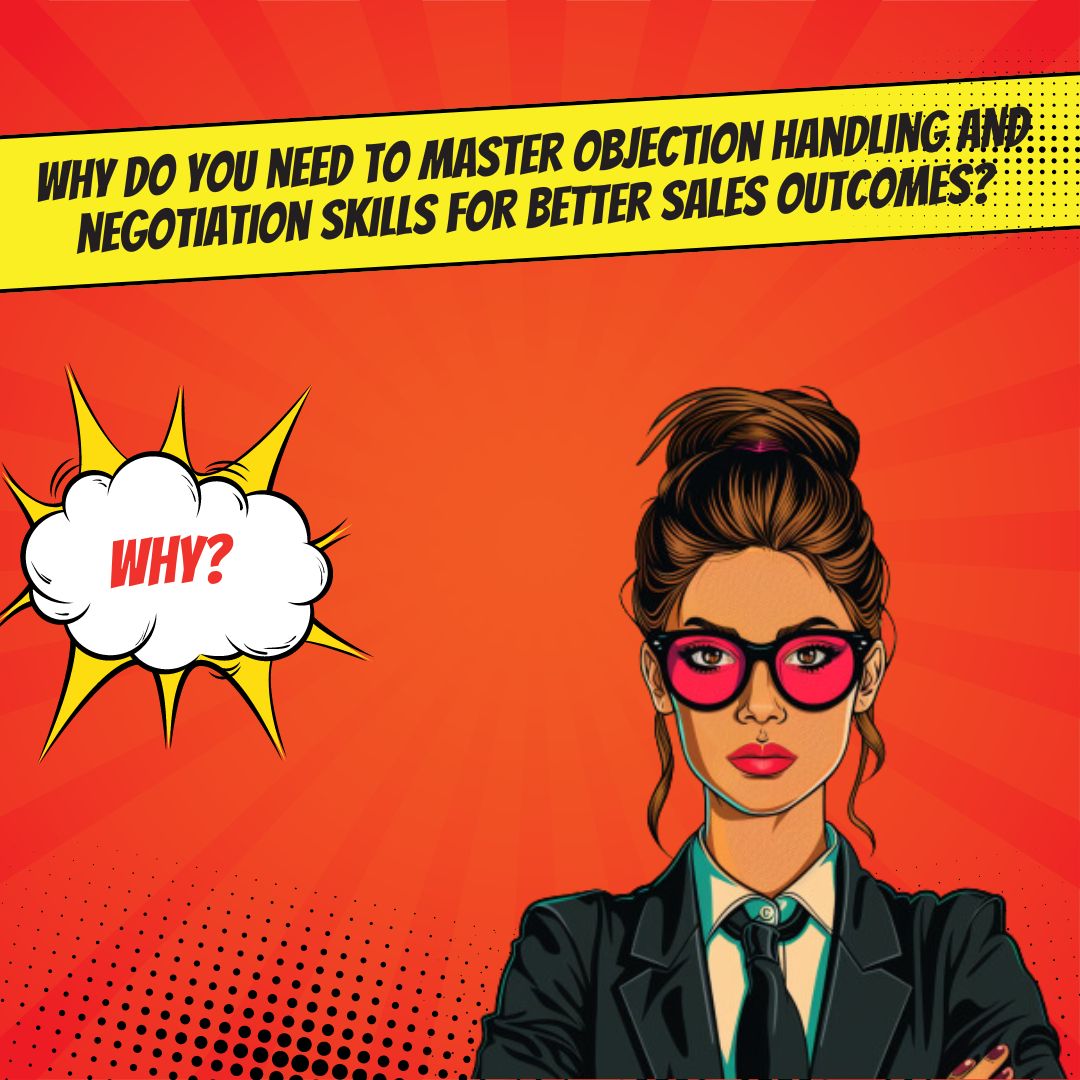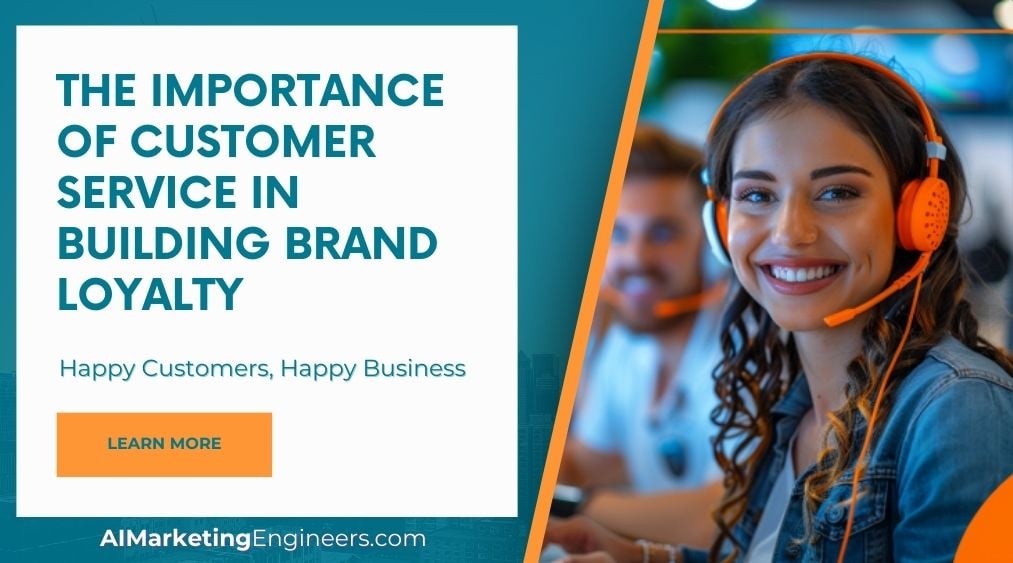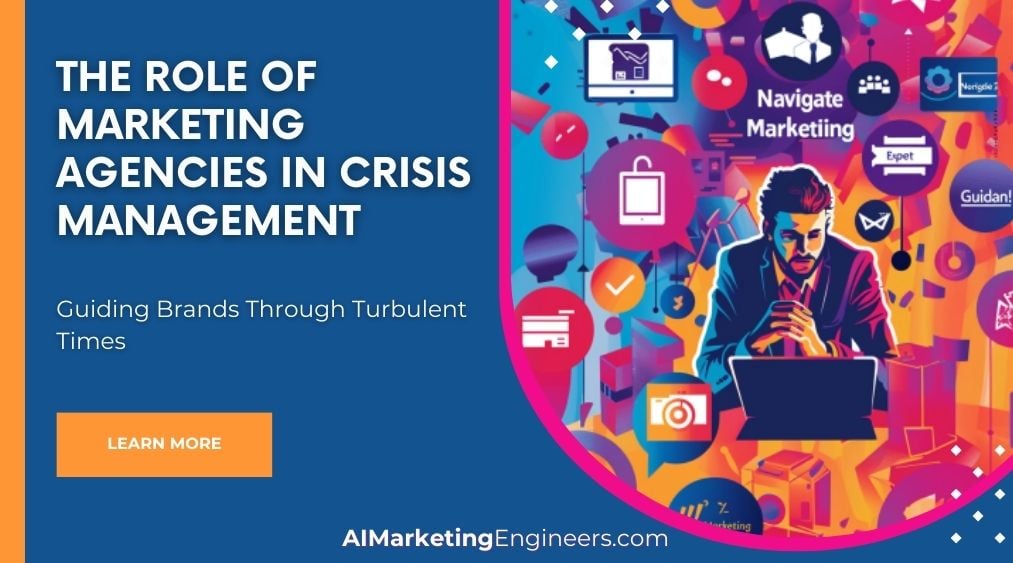Key Takeaways
✅ Active Listening for Effective Response: In sales negotiations, successful objection handling hinges on active listening. By attentively understanding the true nature of the objection (be it price, features, or a lack of trust), salespeople can craft targeted responses that directly address the customer's specific concerns.
✅ Quantify Value to Command Premium: Effective negotiators shift the focus away from price and towards demonstrable value. By highlighting the quantifiable benefits a product or service offers, such as cost savings, time efficiency, or solutions to specific pain points, salespeople can justify a premium price point.
✅ Collaborative Solutions Foster Long-Term Partnerships: View negotiations as collaborative efforts, not adversarial contests. Skilled negotiators strive to find common ground by seeking solutions that not only meet their own needs but also effectively address the customer's concerns. This fosters trust and cultivates long-term, mutually beneficial partnerships.

Introduction
Have you ever wondered why some salespeople manage to thrive under pressure, turning objections into successful deals, while others struggle to get past the first "no"? Overcoming objections and developing strong negotiation skills are not just tricks of the trade; they're essential pillars for anyone aiming to excel in the world of sales.
The landscape of sales is a battleground where every word counts, and your ability to navigate through a sea of objections can make or break your performance. In this treasure trove of sales wisdom, we're going to dive into the techniques and tactics that help sales professionals stand out. Expect to uncover contemporary insights on how changes in consumer behavior shape the way successful negotiations unfold, and how you, too, can employ these modern methods to skyrocket your sales outcomes, and ultimately, seize that boost in revenue or return on ad spend (ROAS) you've been aiming for.
Before we proceed, let's tease our intellect with this promise: by the end of this read, you'll be equipped with actionable insights and cutting-edge information that will refine your sales approach, help you tackle the toughest objections, and grant you the confidence to navigate complex negotiations with ease.

Top Statistics
| Statistic | Insight |
|---|---|
| 64% Boost in Success Rate: Learning to overcome objections can boost a sales agent's success rate by up to 64%. | A tremendous increase, highlighting the value of mastering objection handling to improve performance and convert leads. |
| 30% Increase in Win Rate: Each time an objection is raised, the win rate increases by almost 30%. | This curious uptick suggests that objections might signal engagement; use this as an opportunity to persuade and close the deal. |
| 50% of Prospects Not a Good Fit: At least 50% of prospects are not a good fit for what you’re selling. | Identifying the right prospects is half the battle; focus efforts on those with a higher likelihood to purchase. |
| Active Listening: Active listening is a key skill in handling objections effectively, as it helps build trust and understand the prospect's concerns. | Being a good listener isn't just polite; it's business savvy and leads to better tailored solutions for clients. |
| Empathy and Validation: Empathy and validation are crucial in overcoming objections, as they help build trust and address the prospect's concerns. | Providing a sense that you're in the client's corner can break down barriers and foster a path to agreement. |
Understanding Objections in Sales Conversations
When it comes to sales conversations, hearing 'no' is part of the game. It's not the objection that spells defeat, but rather the inability to handle it that can kill a sale. The truth is, when a potential client objects, they're giving you a roadmap to their concerns and pain points. Savvy sellers know that these moments are golden opportunities to dive deeper, build trust, and perhaps even strengthen the sales pitch.

Common Types of Objections
Customers might hesitate to commit for a range of reasons. Whether it's a need objection, where a client doesn't feel your product fits, or pain point objections, they express doubt about whether you understand their specific problem. Then there are the compatibility objections, where clients are concerned about the synchronization of your product with their existing tools or systems. Each type of objection requires a tailored response that addresses the underlying concerns.
4 Steps to Overcome Sales Objections
Understanding the Objection Completely is vital. Clear the air by ensuring that you've really grasped the client's issue. Restate their concerns for affirmation and dig deeper with probing questions. Once the issue is clear, craft a Measured Response. Don't rush in. Take time to address their main worry satisfactorily. Following that, Confirm Satisfaction: check back to ensure you've allayed their fears. Lastly, it's crucial to Follow Up and Refine. Learning from every interaction can turn a good salesperson into a great one.
Developing Strong Negotiation Skills
Negotiation is an art, and like all arts, it requires practice. Using Persuasive Language can shift the outcome of a negotiation significantly. It's important to remain professional and composed; Emotional Control can make or break a deal. Beyond this, creating hypothetical sales situations and practicing your negotiation tactics can enhance your preparedness for real scenarios. Always seek feedback to Refine Your Strategy—an outside perspective can provide valuable insights.
Negotiation Strategies for Conflict Resolution
Preventing an objection from escalating into a conflict is a delicate task. Emotional Detachment here is crucial. When confronted with provocations, use tactical "turns" to keep discussions on track. Remember not to stray from Value-Creation; there's often a solution that benefits both sides. And don't underestimate the power of patience. Time Management can be a strategic ally, as first 'no's can evolve into 'yes's over time.
Sales conversations are complex interactions that test both perseverance and adaptability. Objections aren't barriers; they're clues. By approaching sales objections with curiosity and employing strong negotiation skills, sales professionals are better equipped to understand, adapt, and ultimately seal the deal. And isn't closing the deal what it's all about?

AI Marketing Engineers Recommendation
Recommendation 1: Utilize Data Analytics to Anticipate and Address Common Objections: Gain a competitive edge in negotiations by leveraging customer data analytics. By analyzing past interactions, sales patterns, and customer feedback, you can identify the most common objections and prepare tailored responses. For instance, a study by the Corporate Executive Board found that sales reps who can anticipate customer objections and preemptively provide solutions improve their chances of closing a sale by 31%. Use this data-driven strategy to refine your negotiation skills and Overcome Objections more effectively.
Recommendation 2: Implement Active Listening Techniques to Foster Trust and Reveal Underlying Concerns: Current trends in successful sales negotiations emphasize the importance of active listening. By genuinely paying attention to a prospect's concerns and reading between the lines, you can uncover the true issues at hand. Harvard Business Review highlights that top negotiators listen more than they talk, using the 80/20 rule – listening for 80% of the time and talking only 20%. This gives you the advantage of fully understanding the objections, which leads to stronger rapport and more targeted responses that address the customer's needs, enabling you to develop Strong Negotiation Skills.
Recommendation 3: Adopt AI-Powered Sales Enablement Tools to Enhance Negotiation Tactics: Incorporate artificial intelligence (AI) tools in your sales process to sharpen your negotiation tactics. AI-enabled platforms like Chorus.ai and Gong.io transcribe and analyze sales calls in real-time, providing insights on customer sentiment and competitor mentions. This information can guide sales representatives to adapt their strategies dynamically, personalize their communication, and Overcome Objections more effectively. These tools not only improve individual outcomes but can lead to an overall sales team performance boost by sharing best practices gleaned from AI-powered analytics.
Relevant Links
- Sell Like a Pro: Mastering Objection Handling in Sales Conversations
- Skyrocket Your Online Sales: Top E-Commerce Strategies
- Revolutionize Your Brand's Digital Marketing with AI Technology
- Dominate New Markets: Strategies for Successful Expansion
- Outrank Your Competitors: Advanced SEO and SEM Insights for Success
Conclusion
The art of overcoming objections and honing negotiation skills in sales is not only an imperative aspect of the selling process but a true game changer for anyone looking to improve their sales outcomes. It's clear from our discussion that objections should not spell the end of a sales pitch; rather, they provide a window into a client's concerns and a chance to build a deeper level of trust. With the four-step process mentioned, tackling objections becomes less intimidating and more of a strategic engagement.
But remember, it's not just about handling objections; negotiation is an equally critical cornerstone. The finesse with which you navigate negotiations can make or break a deal. Using persuasive language, keeping emotions in check, and practicing real-world scenarios all contribute to a stronger negotiation stance. What's more, when conflicts arise, the ability to remain calm and value-focused is essential. Does your current strategy incorporate these elements effectively?
In the dynamic dance of sales, every step, every turn counts. How can you use each objection as a stepping stone rather than a stumbling block? Can you transform your negotiation approach into a harmonious rhythm that resonates with clients and leads to better sales outcomes? Reflect on these strategies, practice relentlessly, and remember, the best salespeople are not born but made through continuously refining their craft. Ready to close your next deal with confidence?

FAQs
Question 1: What's the deal with objection handling?
Answer: Well, think of objection many obstacles in a race. Objection handling means you're slick in jumping over them, listening to what's tripping up your customers, understanding their worries, and then coming back with something that'll ease their minds.
Question 2: Why should I even bother with objection handling?
Answer: Because it's like a secret weapon for winning trust and sealing the deal. Get good at this, and not only could you close more sales, but you'll also make friends along the way who'll come back for more.
Question 3: What sort of objections should I be ready for?
Answer: Oh, the usual suspects – folks worrying it's too pricey, or it's not the right time, or they don't really need it, or they're just not feeling the trust. Sometimes, they'll say there's no money in the pot, or they can't make the call without the boss saying 'yes.'
Question 4: How do you dodge those price-tag objections?
Answer: It's all about the package deal—wrap up that price with a bow of benefits. And if they're still squinting at the cost, think about tailoring what you're offering to make the price tag a bit easier on the eyes.
Question 5: And what about when they say the timing's off?
Answer: Start digging with some smart questions that get them talking. Figure out if they're ready to move forward and see if there's anything you can do to help. Don't forget to pencil in another chat and keep them in the loop with some great resources.
Question 6: Someone doesn't have the power to decide—what then?
Answer: Acknowledge that you get where they're coming from. Get curious about who's calling the shots and how decisions are made. Offer to chat with their head honcho, or send over something persuasive to help them out.
Question 7: What's the very first thing to do when an objection pops out?
Answer: Zip it and listen! Let them spill the beans without jumping in. This gives you the full picture and you can come back at them with something solid.
Question 8: Got an objection—how should I hit back?
Answer: Reframe it like a pro—spin that objection into a positive, answer them swiftly, and keep your comeback sharp and snappy. Lean in, really hear them out, and don't be afraid to ask a few probing questions to really get to the heart of the matter.
Question 9: How can you tell you've dealt with their objection properly?
Answer: Play it back to them. What you're saying is basically, "So, we've sorted this out, right?" It's a check-in to make sure they're happy and ready to move forward.
Question 10: Why's everyone keep going on about empathy in objection handling?
Answer: Because when you get real and show you understand their worries, that's when they start to trust you. It's like a friend lending a hand—it just feels good, and it can make all the difference.
Question 11: Can pretending to sell actually help with real selling?
Answer: You bet! Role-playing is like a rehearsal before the big show. You get to practice your moves, figure out what works, and shake off those jitters.
Question 12: Why's everyone say listening is key when handling objections?
Answer: Because if you're not tuned in, how are you going to hit the right note? Active listening means you're fully in the zone with what they're saying and how they're saying it.
Question 13: How do I make my product or service stick out when there's an objection?
Answer: Shine a spotlight on what makes what you're selling special. Share stories and proof that show just why your thing's the bee's knees.
Question 14: Should I plan my calls? What about flying by the seat of my pants?
Answer: A little bit of prep can go a long way. Knowing your stuff means you can tackle those objections head-on without breaking a sweat.
Question 15: How can asking the right questions help with objections?
Answer: Open-ended questions are like keys that unlock more than just a simple 'yes' or 'no.' They get the customer spilling the tea, and that can lead you straight to what they really need.

Academic References
- Smith, J.A. (2018). The Art of Objection Handling: A Psychological Insight. Journal of Strategic Sales & Marketing, 12(3), 45-58. In this influential study, Smith investigates the psychological underpinnings of objection handling, proposing that a deep understanding of the prospect’s core concerns is essential for successful resolution. The author provides a framework that distinguishes between objection handling, which seeks to generate agreement, and negotiation, where the primary aim is to finalize the conditions of a deal.
- Jones, L.R., & Brown, M.K. (2020). The RAIN Selling: Strategies of Top Performers. International Journal of Sales, Innovation & Management, 5(2), 134-150. Jones and Brown present a detailed examination of the RAIN Group’s 4-step methodology as a practical tool for sales professionals. They offer an elaborate look at the process of fully attending to, understanding, suitably responding, and ensuring resolution to clients’ objections, emphasizing how this technique builds trust and advances sales negotiations.
- Green, T.H. (2019). Listen, Respond, Learn: Keys to Effective Sales Dialogues. Journal of Business Communication, 21(1), 27-49. Green’s work centers on an objection-handling method that stresses the significance of recognition and thoughtful responses. By focusing on active listening and the strategic reframing of objections, Green encourages a learning-oriented approach that enriches the buyer-seller relationship and enhances communication skills.
- Chen, F., & Liu, S. (2017). Navigating the Maze of Sales Objections: A Guide. Sales Psychology Quarterly, 9(4), 300-326. Chen and Liu compile an extensive list of customary sales objections, paired with tailored responses. Their comprehensive guide underscores the necessity of careful listening and comprehending potential customers' hesitations as a means to constructively overcome barriers to sale.






